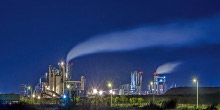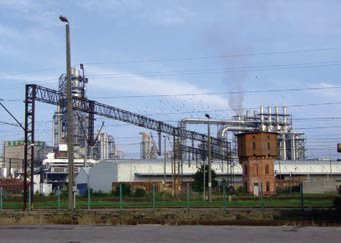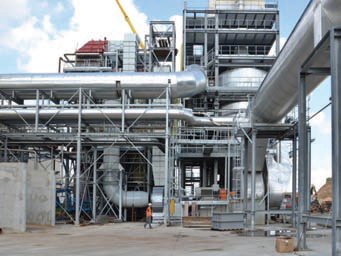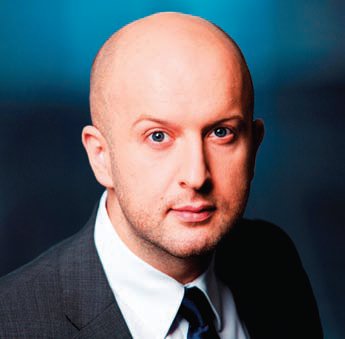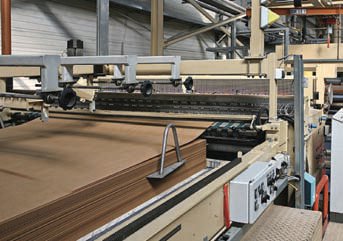Kronospan continues Polish investment
23 March 2015Austria’s Kronospan has unveiled plans to invest about €100m in expanding and modernising its production facility in Szczecinek, in northwest Poland. Our Polish correspondent, Jaroslaw Adamowski, reports.
On the occasion of the official 25- year celebrations of Kronospan's MDF/ HDF factory at Szczecinek, the company's chief executive, Peter Kaindl, announced a new €100m investment project, to be completed by 2017.
The funds will be used to fit the plant with new equipment and photo-voltaic panels, which will provide solar energy for its operations, as well as to launch production of furniture using its wood based panels.
"We discussed a number of topics with Mr Kaindl, including the company's further development plans in Szczecinek," Mayor of Szczecinek, Jerzy Hardie-Douglas, told local journalists.
Other topics discussed by the representatives of local and regional authorities included possible state aid for the planned investments by Kronospan, which could secure co-funding provided by the Polish government, the region of Western Pomerania, where the plant is located, or the European Union's Cohesion Funds.
Poland's deputy minister of economy Andrzej Dycha and Jaroslaw Rzepa, the deputy head of Western Pomerania's regional authorities, also took part in the official ceremony at the facility, alongside Tomasza Janczak, the chief executive of Kronospan's Polish subsidiary.
"Kronospan is a major engine for the changing landscape of Szczecinek's, and also the region's, economy," Dycha said. "Kronospan is a good example of a company which certainly used well the last 25 years [of its operations].
"The firm has revenues of about €370m/ year. It is also posting a sales increase of about 10% every year. Such positive results place the company among the leading Poland-based businesses."
Wood based panels have been produced in Szczecinek since 1961, when the Polish state established local production facility Zaklady Plyt Wiórowych (ZPW). Following Poland's democratic transformation and shift to a market economy in 1989, the majority of state-owned assets were privatised, and the factory was subsequently taken over by the Austrian investor.
Since then, the plant has established itself as one of the powerhouses of Western Pomerania's economy.
The Szczecinek-based facility is currently operated by about 720 workers, and provides employment to a further 5,000 employees of cooperating companies in the region. In addition to the domestic market, the Polish factory supplies MDF and HDF to some 36 foreign countries.
The event at the plant in Szczecinek was accompanied by a debate featuring industry representatives and experts, which pointed to several challenges impacting the country's wood based panel manufacturers. Among the most significant ones, experts pointed to the relatively high prices of wood in the Polish market.
"We could use this opportunity to make a call to the state forests to increase the limit on the amount of acquired wood," said Maria Antoni Hikiert, the deputy head for research and development at the Wood Based Panel Industry Institute for Research and Development (OBRPPD), a local research oganisation.
"Our forests are ageing, and the prices of wood are continuing to increase due to the fact that the market is imbalanced," Hikier said at the panel discussion.
Further investment in Poland
In addition to the factory, Kronospan owns facilities located in Szczecinek, Szczecin, Mielec, Dobroszyce, Rudawa, Pustków and Pozna. The company's storage facilities are located in its two Polish plants in Strzelce Opolskie and Mielec.
Since the company's expansion into the Polish market in the late 1980s, Kronospan says it has managed to successfully overhaul five existing production facilities and set up three new factories.
In total, the Polish plants are operated by a workforce of more than 2,500 and a further 15,000 workers are employed by the firm's business partners in Poland, according to data from Kronospan.
Meanwhile, Kronospan is aiming to carry out a number of investments at its other Polandbased production facilities, totaling €149.7m for two of the factories.
In June 2014, another project was unveiled by the authorities of the Europark-Mielec special economic zone (EMSSE) in Poland's southern Podkarpackie region. Kronospan will invest more than €48.2m to modernise the factory, whose product portfolio includes MDF, HDF and HPL, overhaul its production processes, and decrease the plant's emissions.
Production at the factory in Mielec was launched in 1996. Owing to the project's location in a special economic zone, Kronospan will obtain preferential tax treatment for its investment.
The zones are scheduled to remain operational in the Polish market by 2026, according to the government. Another major investment is being implemented at the manufacturer's factory in Strzelce Opolskie, in Poland's southwest. By the end of 2015, Kronospan is aiming to launch a new production line for OSB under a project worth some €101.5m.
Of this, about €29.49m is being provided by the EU.
Under its plan, the Austrian company will create more than 200 new jobs at the plant, as earlier announced by Kronospan's representatives.
The company told local news agency PAP in August 2014 that recruitment for the new facility was already underway.
Polish furniture industry expansion
In the Polish market, Kronospan is leveraging its growth on the continuing expansion of the country's furniture industry.
In October 2014, with the aim of increasing its wood based panel output, the Austrian firm signed a deal with local chemical giant Grupa Azoty to secure deliveries of melamine and urea to its production facilities, with an estimated worth of €211.5m by the end of 2018.
Under the plan, deliveries are intended for four of Kronospan's factories in central Europe, including Poland-based plants in Mielec and Szczecinek, as well as the group's production facilities in Strážske, in eastern Slovakia, and Ostrava, in the Czech Republic's north-east, Grupa Azoty said in a statement.
"The modernisation efforts undertaken at Polish chemical plants in the early 1990s, and [turning them into] significant suppliers of urea and melamine, important components used by the wood based panel industry, were a key factor in the development of Poland's chemical industry," said Miroslaw Malinowski, a board member at Kronospan Chemical Poland. "Today, Poland is the second-largest producer of MDF and OSB in Europe. Kronospan has served as a leading force behind the growth of the wood based panel industry in Poland."
The available data suggests that the development of the country's furniture industry is increasingly export-driven. According to data released by Grupa Azoty, Polish furniture manufacturers are aiming to sell €1.72bn worth of products in 2014, which represents a 5.8% increase from export sales of €1.62bn posted a year earlier. Germany is the leading export market for the country's furniture industry, which consists of about 24,000 companies, responsible for generating some 2% of Poland's Gross Domestic Product (GDP). Of these, 100 are major companies operated by a workforce of more than 250 employees and 1,500 are small firms which employ between 10 and 50 workers. In terms of their output capacity, local furniture makers rank fourth among EU member states, preceded by Germany, Italy and UK competitors.
Kronospan operates 34 production facilities, located in 24 countries worldwide, according to data released by the Austrian firm.
